Jackie Wilson (Jack Leroy Wilson) – “Mr. Excitement!”
Originally Posted on – Blues For A Big Town Blog
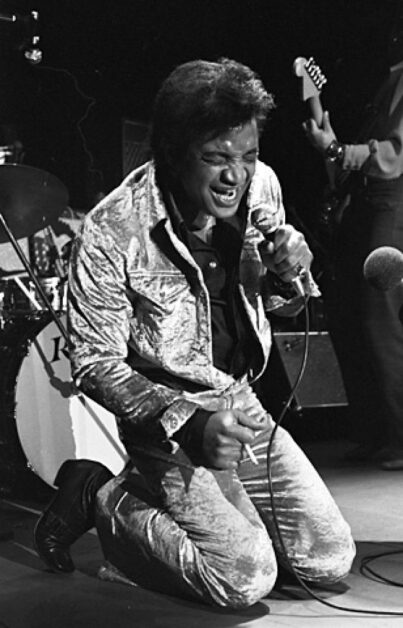
“The greatest singer I ever heard – the epitome of natural greatness”
Berry Gordy
“The most dynamic singer and performer that I’ve ever seen”
Smokey Robinson
JACKIE WILSON – Mr. Excitement!
Endorsements such as those noted above by the founder of Motown and by one of Motown’s greatest stars are right on the money.
Those statements ring true despite the fact of Jackie Wilson’s career triumphs, particularly in the studio, being largely understated. As special a talent as Jackie Wilson proved to be, he should have been more dominant during his most productive years. But his career long record company – Brunswick Records – lacked an artistic vison and the promotional wherewithal required to push an extraordinary artist such as Wilson to the top.
From his side, Jackie Wilson contributed to the situation by being too trusting of management and his label to do right by him. But, despite these circumstances, Jackie Wilson was a star. And in the course of a career running the gamut of Doo-Wop, Blues, Rock & Roll, and R&B, Wilson stands as nothing less than one of the forefathers of Soul.
Consider this: Jackie had 42 R&B hits, (including 6 that hit #1), 24 Top 40 crossover hits, (with 14 landing in the Top 20), and 55 releases that registered on the Billboard Top 100.
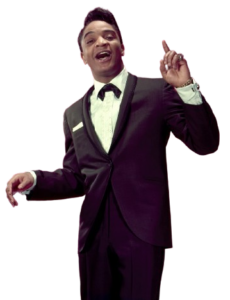
In addition, Wilson recorded more than 30 albums** including a number of standouts over the course of 17 years. He achieved all of this while being saddled with large orchestral arrangements and, in the main, less than the sympathetic accompaniment that a major force like Wilson deserved. To his credit, as demonstrated in his above accomplishments, even with the predominantly schmaltzy backing, Jackie Wilson’s talent and style dominated those same recordings.
**My personal favourites: Jackie Wilson Sings The Blues (1960), Nobody But You (1976, his last album release)**
While impressive, the truth is that those records tell only one part of the Jackie Wilson story. What’s missing, and made Jackie a major Black star, was Wilson’s electrifying live act. Indeed, his enduring stage show, more than his records, caused a stir; and put him on a par with Sam Cooke, Ray Charles, James Brown, Nat King Cole, and other Black stars of the day.
Simply put, Jackie – with his four octave range – could sing with the refinement of Sam Cooke; and, displaying an unmatched sensuality and physicality, moved with the wild energy of James Brown.
Wilson toured constantly – more than 250 nights a year. A typical performance would include a barrage of dazzling dance moves, jumps, splits, turns, fancy footwork, knee drops, and spins. All would be put forward with a coolness that made it seem effortless, almost second nature. And there’s no doubt as to what Wilson was selling; (you can ask the women).
Women’s attraction to Wilson’s “matinee idol “good looks wasn’t lost on him; in fact, Jackie thrived on it.
He would tease them, and willingly leap into a sea of outstretched arms of adoring female fans with little or no regard for his personal wellbeing or his wardrobe. Women were known to tear at his clothes as he worked himself and his audience into a fever. On many occasions a sweat soaked Wilson would have to be escorted to safety; with many of his sharkskin suits no longer wearable after performing in pools of sweat.
Mr. Excitement, you bet!
Jackie was attuned to his hold on women in his daily life as well; and was all too willing to exploit it. This bears mentioning because it’s integral to any Jackie Wilson account as well as bringing to light a life threatening and potentially life altering experience.
It appears that this revelation came to Jackie early in life, and set the tone for Wilson’s lifelong serial womanizing.
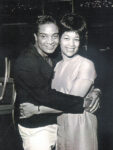
Not even marriage to his childhood sweetheart Freda Horn could dampen his inclinations. (Jackie was 17 when they married after Freda became pregnant with the first of the four children that they would have together). In fact, Jackie’s philandering ways not only led to a divorce from Freda; but his extra marital affairs also caused him to be shot by Juanita Jones, a jealous girlfriend.
The story goes that Jackie returned to his apartment with fashion model Harlean Harris, (Sam Cooke’s ex and Jackie’s future second wife), with Jones laying in wait. The shooting resulted in Wilson losing a kidney and carrying an inoperable spent bullet for the rest of his life because it was lodged too close to his spine to be removed. Unbelievably, Jackie was back on his feet after just 3 months convalescence. Jackie, however, lived in constant fear that the bullet would move thereby causing further / permanent damage to his spine.
Going back, Jackie remembered singing at an early age.
Born Jack Leroy Wilson in Detroit on June 9, 1934, Jackie – or Sonny as he was known to family and friends – grew up in the Highland Park area of Detroit’s north end. Encouraged by a doting mother, Jackie started singing in Church at 6 years old. By the time he was ten, Jackie was singing Gospel and Blues on street corners. And by the time he was 15, using a fake ID, an under age Jackie was a regular guest singer at local Black clubs.
Singing aside, there was a lot of turmoil as Jackie maneuvered through life as a troubled youth.
Wilson started drinking at the age of 9; (the beginning of a chronic dependency that lasted into his late 30’s). Wilson’s early years proved to be a constant battle between juvenile delinquency and his passion for singing. He became a member of The Shakers, a violent and feared neighbourhood gang, and was sent to the Lansing Juvenile Detention Centre twice before he was 16.
During his second stint at Lansing Jackie was encouraged to learn to box.
It proved to be a fruitful venture. Wilson entered the Golden Gloves Of America competition and won the Detroit American Amateur Gold Gloves Welterweight title. Like a lot of young men from poorer neighbourhoods Jackie viewed boxing as a way out of a marginal life, (in Jackie’s case somewhat predictable having dropped out of school in grade 9). That being his mindset, he wanted to be a professional boxer but his mother – a powerful influence in Jackie’s life – dissuaded him otherwise and directed him to continue to pursue a singing career.
That same year Wilson formed and performed with The Ever-Ready Gospel Singers – an acapella quartet that was popular at churches in the district.
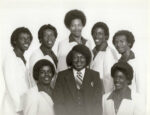
When asked about singing Gospel, Wilson’s response was that he wasn’t religious as such; that he just wanted an opportunity to sing. (When pressed further he admitted that the few dollars that he would take in would help to buy some cheap wine).
Jackie also performed with various R&B groups like The Thrillers, (that included his cousin Levi Stubbs, the future lead singer of The Four Tops); and an early day version of The Falcons, (which would later include and help launch the careers of Eddie Floyd, Mack Rice, and Wilson Pickett among others). And, at around this time, Jackie, (as Sonny Wilson), made his recording debut on Dizzy Gillespie’s Dee Gee label with a rendition of the standard “Danny Boy” b/w “Rainy Day Blues”. Neither song registered on the charts but it was a start; and it provided exposure to a studio setting.
Wilson was influenced by The Ink Spots, Louis Jordan, and The Mills Brothers but was most enamoured with the flashy Clyde McPhatter.

At the time McPhatter was the lead singer of Billy Ward & The Dominoes. Jackie truly tracked his every move and by the time he was 19 Wilson had incorporated McPhatter’s vocal mannerisms and stage show that included twists, shimmies, and knee drops. Jackie readily acknowledged McPhatter’s impact on his own stage persona: “I learned a lot from Clyde – that high-pitched choke he used and other things… Clyde McPhatter was my man; Clyde and Billy Ward”.
When McPhatter left to form The Drifters Jackie approached Billy Ward and told him that he was not only the best man to fill McPhatter’s shoes but that he was also a better singer than Clyde. This led to an audition; which left no doubt that Wilson was the obvious choice to replace McPhatter.
In the 4 years that Wilson was with Billy Ward he was the lead singer on 3 hits. The success of their 1956 Pop hit, “St.Therese Of The Roses”, convinced Jackie that he should pursue a solo career. And in 1957, at 23, Jackie Wilson did just that.
Jackie had immediate success when his manager Nat Tarnapol got him signed to Brunswick Records, and put him together with Berry Gordy – then a fledgling songwriter – and Berry’s song writing partner Roquel “Billy” Davis (AKA Tyran Carlo). In 1957/ 58 the Gordy / Davis / Wilson triumvirate reeled off 5 hits in succession: “Reet Petite”, “To Be Loved”, “That’s Why (I Love You So)”, “I’ll Be Satisfied” and Jackie’s first big hit “Lonely Teardrops” (that went to #! R&B and #7 Pop). Unfortunately, it would end there as the songwriters parted ways with Tarnapol after a disagreement over royalties.
Jackie spent the late 50’s through to the mid 60’s with Brunswick staff producer Dick Jacobs.
It was Jacobs who was responsible for backing Wilson with the aforementioned hackneyed arrangements. Jacobs did so with an eye to capitalizing on Jackie’s ability to crossover to a wider (white) audience. While Wilson no doubt made some inroads, his early 60’s career had stalled due mainly to Jacobs’ bland Pop scores. The situation makes one wonder what Jackie could have achieved in the Soul era had he been on the hipper Stax or Motown label.
Doubtless, neither of these labels would have drowned Wilson’s sublime voice in sterile arrangements.
In addition, Jackie would have benefitted from quality material, top flight backing musicianship, as well as superlative promotional efforts. (The mention of Motown brings to mind that, given Gordy’s regard for Jackie’s talent, it’s never been said why he didn’t try to sign Jackie to the label. The understandable answer may be Gordy’s reluctance to have to deal with Tarnapol once again).
In 1966 Wilson relocated to Chicago and teamed up with producer Carl Davis. (Davis had played a key role in the success of Chicago Soulmen Jerry Butler, Major Lance, and Gene Chandler).
The Wilson / Davis union was a rewarding one, providing Jackie with a resurgence, (however fleeting). Davis brought Jackie into the Soul era; updating his style to a more contemporary R&B sound. Results were immediate with 4 hits: “Whispers (Getting Louder)”, “(Your Love Keeps Lifting Me) Higher And Higher”, “I Get The Sweetest Feeling”, and “This Love Is Real (I Can Feel The Vibrations)”. (Also, it should be noted that Davis was at the helm of Jackie’s last album Nobody But You that’s viewed in some circles as Wilson’s finest).
But the renewal was short lived; by 1968 Wilson’s career was in decline.
Jackie continued to record and tour but the magic seemed to have evaporated. By 1975, at 41 years old, Jackie Wilson had resorted to appearances on the oldies circuit. On September 9, 1975 Jackie was performing as part of Dick Clark’s “Good Old Rock & Roll Revue” at The Latin Casino in Cherry Hill New Jersey.
Jackie was singing his hit “Lonely Teardrops” when on the lyrics “my heart is crying” he suddenly collapsed. The audience started applauding thinking the schtick was part of the act. They quickly realized, along with everyone else, that it wasn’t. Jackie had suffered a heart attack; and in the course of the collapse hit his head and suffered a concussion. As a result, with a lack of oxygen to the brain, Jackie suffered permanent brain damage and lapsed into a coma. He was hospitalized for 8 ½ years**, and died on January 21, 1984. Jackie Wilson was only 49 years old.
**It’s been cited in more than one account that Dick Clark paid his medical bills. It’s also been rumoured that Elvis played a role in paying his medical bills as well**
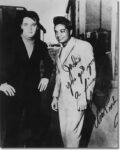
Jackie Wilson continues to live on in the hearts and minds of his many existing fans the world over. The new and uninitiated should know that his recordings are readily available, streaming services continue to offer his works, and that his performance videos can be found on YouTube. All stand in evidence of his undeniable talent.
On the other hand, those who were fortunate to have witnessed Jackie Wilson in real time, whether on record, in concert or his many TV appearances, (on American Bandstand, Shindig, Hullabaloo, Ed Sullivan etc.), will attest to the many accolades heaped on him. Of this particular set, Elvis Presley, an unabashed Wilson devotee, carries considerable weight. In an interview after being told that Jackie was sometimes referred to as the “Black Elvis” Presley replied “I guess that makes me the ‘White Jackie Wilson’”.



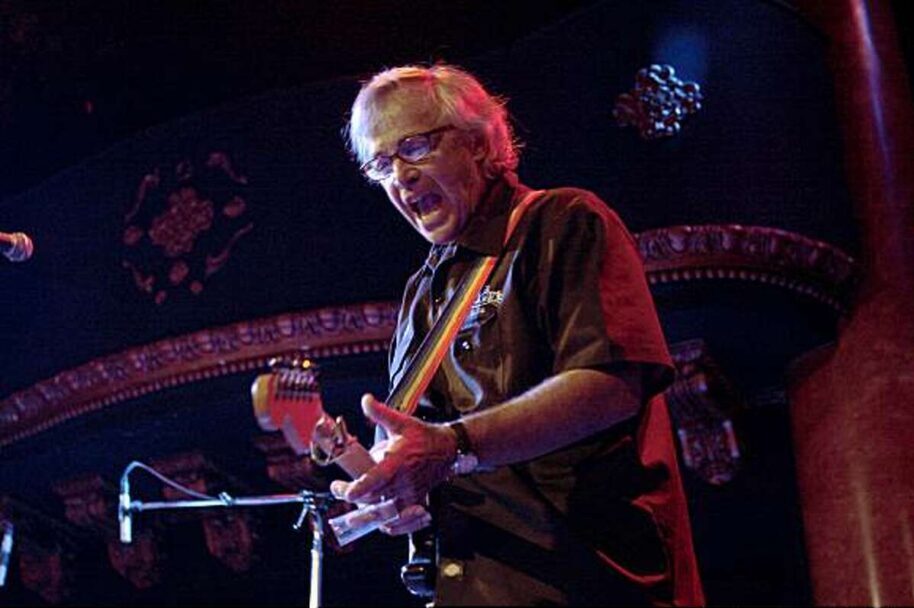

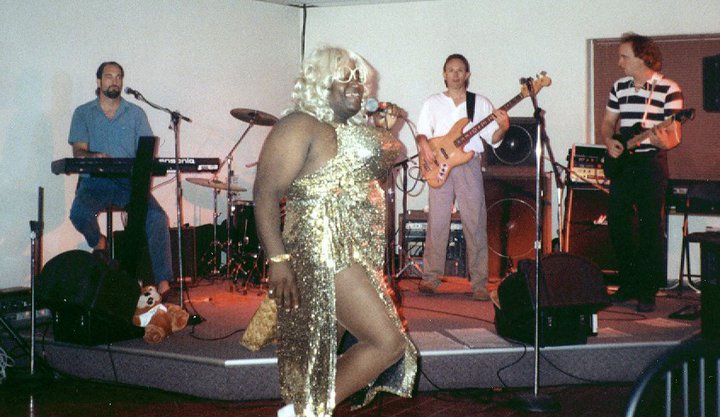
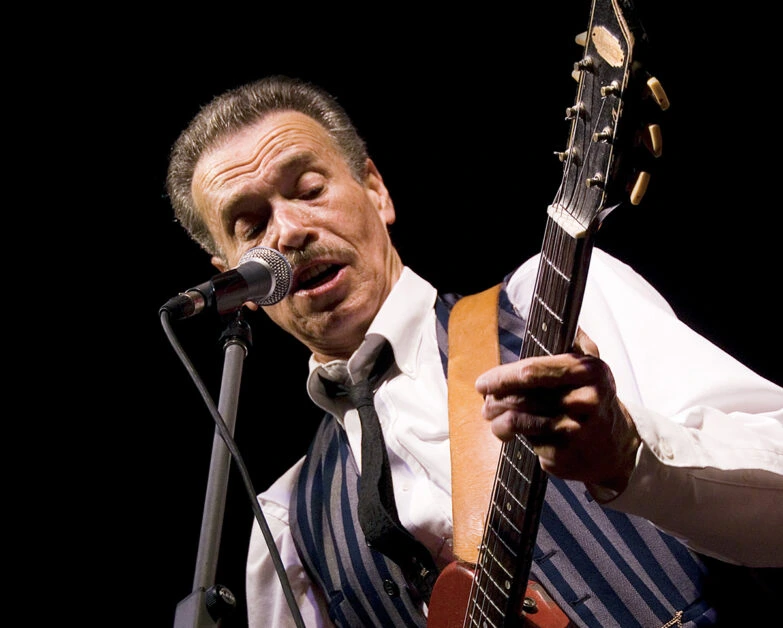
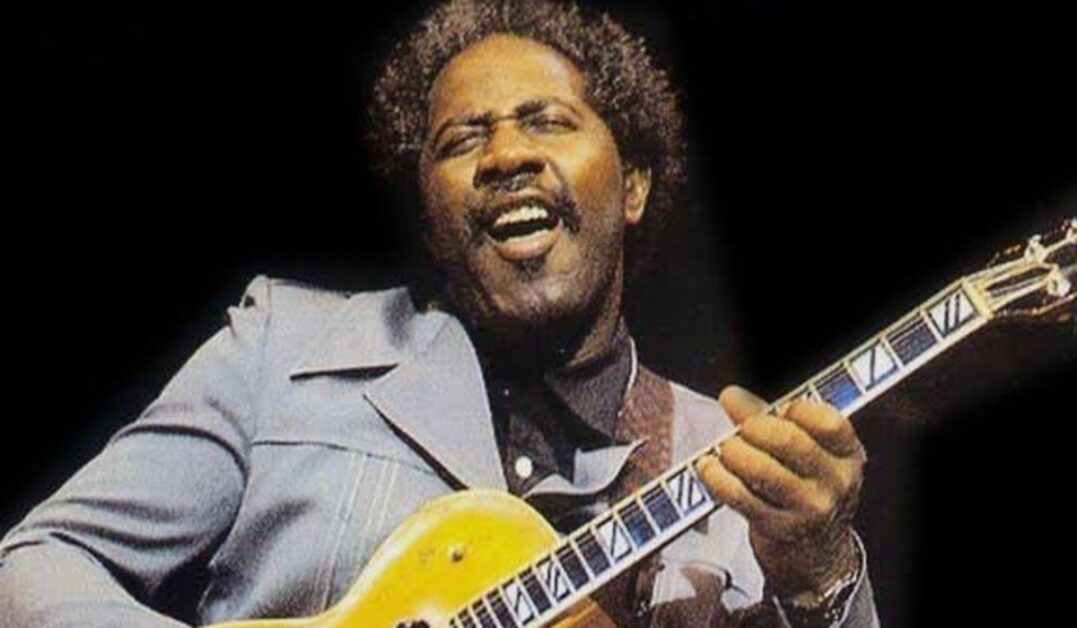
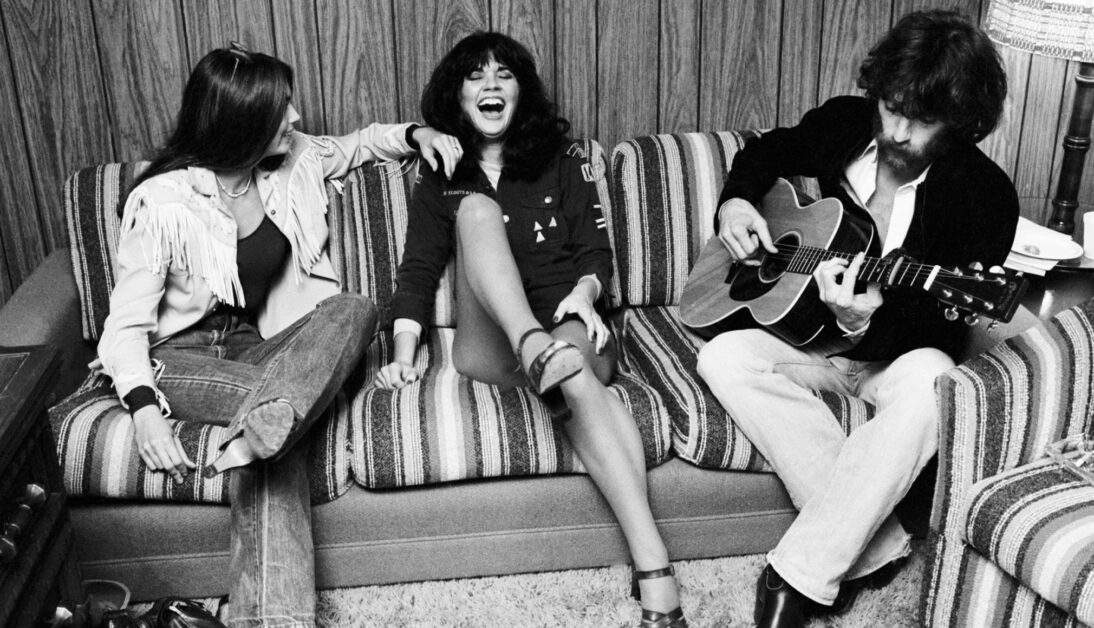
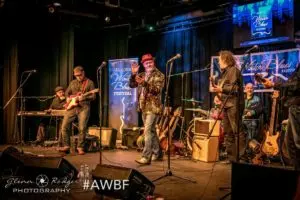
Thank you so much for this. Maybe it’s strange that a young white boy living on the north-east coast of England could have instantly “got” Jackie Wilson’s music, but that’s what happened. I, too, have often wondered why Berry Gordy didn’t take Jackie to Motown with him – Jackie’s vocal styles and range, the musicians and the writers (HDH) would have made him a world star. Did Nat Tarnapol have “connections” which prevented a move? I never saw Jackie on stage, but my memories of the music live on,
Thank you for your comments.
Yes Jackie Wilson was an awesome talent and does not get the recognition he deserves.
All the credit for this post should go to Rico Ferrara, the author. If you are interested in reading more posts about other great artist please feel free to browse the website and I am sure you will find other articles interesting.
Have a Great Day
Joe
Sounds great, lively music and energy.